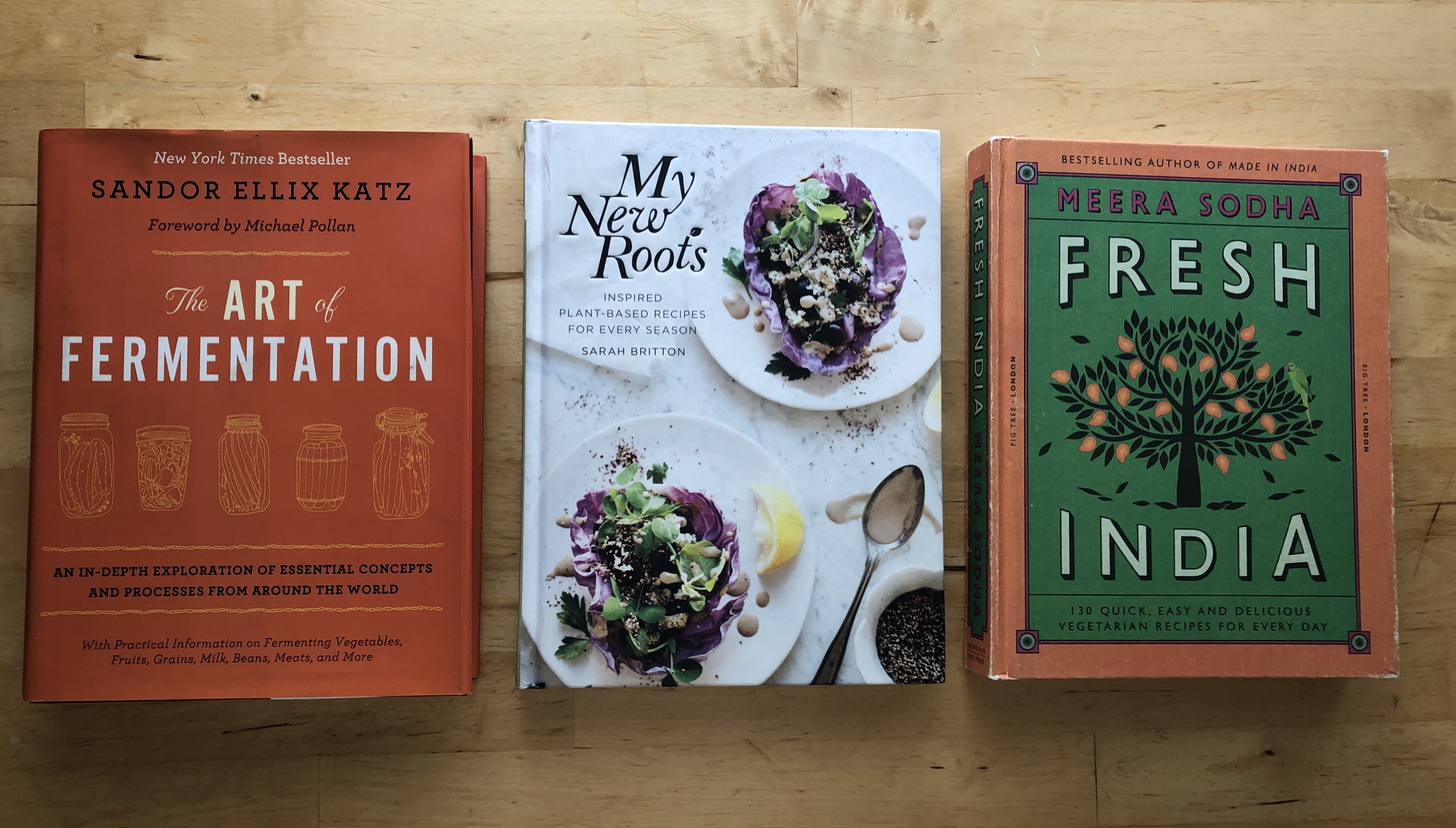In the past few years, veganism has gone mainstream, with “plant-based” eateries now ubiquitous in the more gentrified pockets of urban centres and weekly animal product-free recipe columns appearing in major newspapers.
There are problems with the mainstreaming of veganism — namely, the fact that adopting a plant-based lifestyle as a habit of consumption often ignores the urgent political issues of animal cruelty and environmental degradation that activist veganism seeks to address (not to mention veganism’s uncomfortable links with gentrification in places like Toronto’s Parkdale neighbourhood).
We shouldn’t forget these. But there are upsides, too, including the wider availability of resources for vegan cooking. Whether explicitly labelled as vegan or appearing under the banners of “plant-based” or “vegetable-forward” cooking, there is now an overwhelming abundance of options for the aspiring vegan chef.
Long before our dubious era of $20 avocado toast, Isa Chandra Moskowitz started Post Punk Kitchen, a cooking show on Brooklyn Public Access television that morphed into a recipe message board and then eventually became Moskowitz’s blog and several cookbooks, including Vegan Brunch and Vegan Cupcakes. The PPK blog is a great place to begin, however, with recipes that tend toward the affordable and comforting, which feels very apt in a moment when all I want to eat are a lot of cheap carbs — think potato-based dishes and several different recipes for vegan mac and “cheese.”
For those transitioning away from a more meat-heavy diet, Mark Bittman’s Vegan Before Six is a good place to start. Bittman’s idea, which grew out of his own desire to lose weight and lower his cholesterol, is to practice veganism before 6 p.m. (so, for breakfast and lunch) and then return to omnivorism for dinner. For that reason, not all recipes in Vegan Before Six are free of animal products, but the book is still a helpful resource for those who want to begin reducing their meat and dairy consumption.
One thing I’ve found over years of cooking from plant-based blogs and cookbooks is that vegan recipes can sometimes feel much more complicated than non-vegan ones: vegetables must be peeled and chopped, tofu marinated, beans soaked, and flavour-enhancing sauces blended. Minimalist Baker’s Everyday Cooking, authored by chef Dana Schultz, evolved in response to the need for fast, straightforward vegan recipes, first as a blog and then as a book. Each recipe in Minimalist Baker is 10 ingredients or less; requires one pot; or can be ready in 30 minutes. All of the recipes in the book are vegan, and most are gluten free.
Of course, a lot of regional cuisines were functionally or entirely vegan long before it became trendy in London or New York. This is the subject of U.K. chef Meera Sodha’s new cookbook East, which comprises vegan (and some vegetarian) recipes from Asian cuisines. East developed out of Sodha’s excellent (free) vegan column in The Guardian, which includes such savoury delights as this colourful beet pilau (great for a dinner party, whenever we can have dinner parties again) and kimchi pancakes.
What about dessert? Canadian blogger Angela Liddon is arguably the queen of indulgent vegan desserts. I’ve made the hazelnut chocolate torte from her first book multiple times to wild acclaim and have lately been eyeing her recipe for peanut butter cookie ice cream. Anya Kassof and Masha Sullivan’s Golubka Kitchen Sweets is an electronic, affordable overview of key components of vegan baking and desserts, including a butter-free pie crust, coconut caramel, nut-based frostings and churn-free vegan ice cream.
Going vegan is also an opportunity to align your habits more closely with the seasons. (Have you ever eaten a freshly picked tomato in late summer? All it needs is a tiny sprinkling of salt — no cheese required.) In Canadian holistic nutritionist Sarah Britton’s cookbook My New Roots, recipes are divided by season rather than meal: fall, winter, early summer, and late summer. Mostly focused on the produce available during Canadian seasons, the book contains recipes with ingredients ranging from the commonplace (tomatoes, pumpkin, squash and beets) to the obscure (white asparagus?) and the affordable (a red lentil soup that I make every winter) to the less so.
We’re all spending way more time at home these days, so why not ferment something? Fermentation increases the variety of flavour, textures and nutrients available in a vegan diet, and there is no shepherd of the microbiome better known than Sandor Katz. The Art of Fermentation covers everything you wanted to know about fermentation and more, and while not all of Katz’s materials are vegan (two chapters cover dairy and meat fermentation), most of them are. Many beloved fermented foods are already vegan, including sourdough bread, kombucha and sauerkraut. Katz’s book also includes steps for making several staples of vegan cooking from scratch, including miso, tempeh, and nut cheeses.
Finally: where to buy your cookbooks? Many of the titles listed above started out as blogs; these are great, free resources for vegan cooking, so I’d recommend beginning there. Public libraries often have e-copies of cookbooks available to borrow, so check your local branch. And if you decide you want to pay for a hard copy, support your local independent bookstore, many of which carry cookbooks.
Happy chopping!
Christina Turner is an assistant editor at rabble.ca.
Image: Christina Turner



